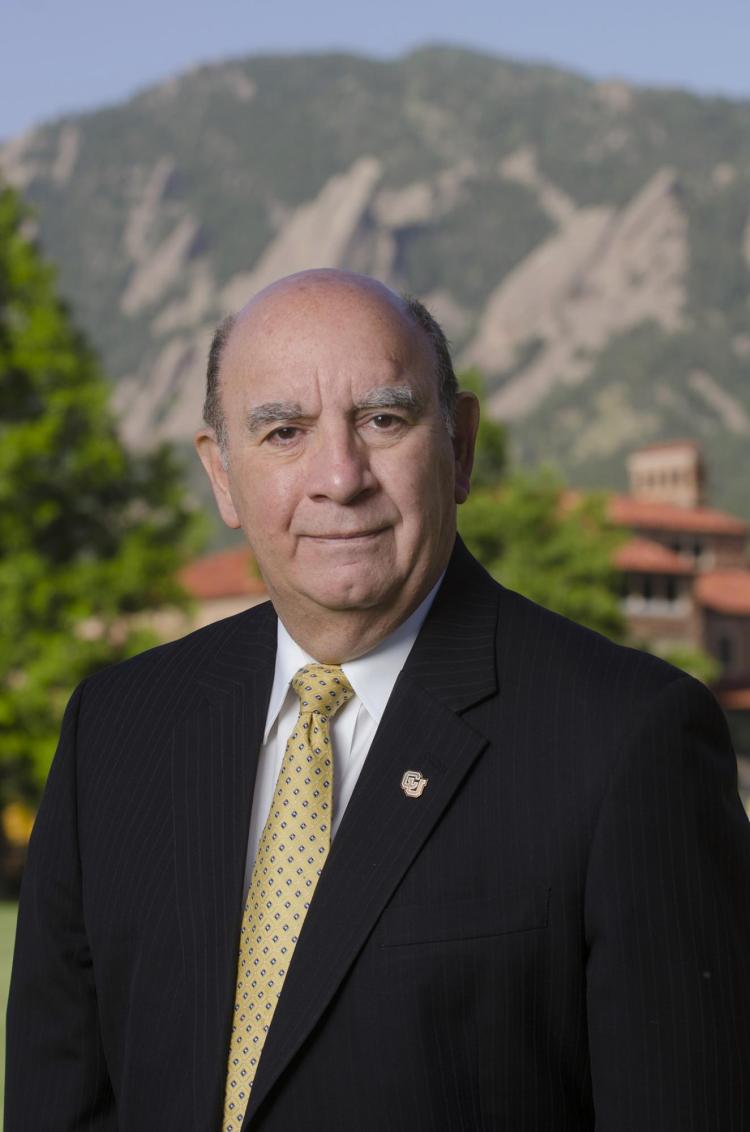Chancellor's Corner: Tax reform proposals in U.S. Congress, potential impacts on higher education
As you know, our Congress is currently working on legislation to change our tax code. The House of Representatives passed H.R.1, the Tax Cuts and Jobs Act out of the Ways and Means committee on Wednesday, and we expect a floor vote sometime next week. The Senate has introduced its own version of this bill, which differs from the House bill, and we are analyzing that legislation now.
While both have many provisions affecting various industries and all of us as individuals, today we are writing to inform you of the impact on higher education.

Chancellor Philip P. DiStefano
Today, President Benson, myself and the three other CU chancellors will be contacting our federal delegation to let them know our concerns about the proposed legislation. A number of associations to which we belong, such as the American Council on Education (ACE), the American Association of Universities (AAU), the American Public and Land-grant Universities (APLU) and Council of Graduate Schools (CGS), have weighed in on the negative impact this legislation will have on higher education and our students.
Here are the key elements of the House bill that concern us, the possible impacts and what we have shared with our Congressional delegation:
Eliminating the Lifetime Learning Credit (LLC), Student Loan Interest Deduction (SLID) and Section 117(d)
Eliminating and consolidating these tax credits will hurt graduate students in particular, who already receive limited federal educational support. Section 117(d)(5) currently treats qualified tuition reductions for graduate students, who are serving as teaching and research assistants, as a tax-exempt benefit.
Eliminating this benefit will make it dramatically more costly for students to pursue a graduate degree and harm the research enterprise, as well as the STEM pipeline. On our campus alone, this change would subject many graduate students to additional tax liability with no new funds to address that liability.
Encouraging private support of CU’s missions
For public colleges and universities like CU, the charitable deduction is vital to generating private support to help achieve our educational missions of teaching, research, public service and patient care. H.R. 1 nearly doubles the standard deduction, a change that is projected to eliminate use of the charitable deduction for more than 90 percent of U.S. taxpayers.
This week, the nonpartisan Joint Committee on Taxation (JCT) estimated that H.R. 1 would decrease use of the charitable giving tax credit by $95 billion next year alone. This could result in a loss of millions of dollars for financial aid programs that benefit CU students, groundbreaking teaching and research activities by CU faculty, and vital patient care programs.
We are likewise concerned by the repeal of the charitable deduction for the right to purchase tickets at college athletic events. This is another tool that incentivizes charitable giving to support our students, research and public service.
Finally, H.R. 1 creates a tax on endowments targeted at private colleges as universities. While this provision does not directly impact CU, we remain deeply concerned about the precedent of an endowment tax. CU's endowment is a vital tool for philanthropists to fund the important missions of the university in perpetuity. Taxing these funds will rob future generations of Coloradans of opportunities in education and science.
Financing Colorado’s infrastructure investment needs
CU uses tax-exempt bond financing to make important capital infrastructure investments, such as the construction of academic buildings, residence halls, student centers and many other facilities. CU is particularly concerned by the inclusion of Section 3602 in H.R.1, which would repeal the tax exemption for advanced refunding bonds.
Public university systems like CU have used advanced refunds to great effect over the last decade—reducing costs for students and faculty, even as state financial resources have been severely restricted. We estimate CU has saved approximately $60 million in borrowing costs over the last decade by using advanced refunds. Eliminating this tax-exemption will dramatically increase CU's borrowing costs in the future.
Likewise, CU has concerns about Section 3601, which eliminates private activity bonds. CU has worked closely with entities such as our hospital partners, our faculty practice plan and the CU Foundation to utilize private activity bonds to lower the costs of many important facilities on our campuses. Ultimately, savings to CU campuses on bond payments free up our budget to focus on student affordability.
While there are other provisions, as well, that will affect higher education, these are the key impact areas. We encourage you to read the provisions in detail.
Our government relations team also is analyzing the effect of the proposed Senate legislation, and we will be reaching out to our Colorado senators. The AAU has released this statement.
The university adheres to all of the requirements for representing our interests and engaging with our lobbyists to represent us. We remind you that faculty and staff, and of course students, are always free to engage in the political conversation as individual citizens. Here is a link to the rules around personal lobbying for your reference.
Please contact Kirsten Schuchman in Strategic Relations and Communications for more information at kirsten.schuchman@colorado.edu.
Philip P. DiStefano,
Chancellor


